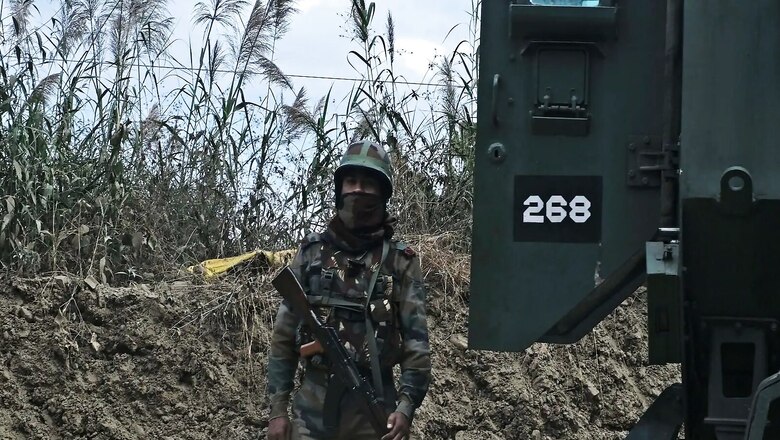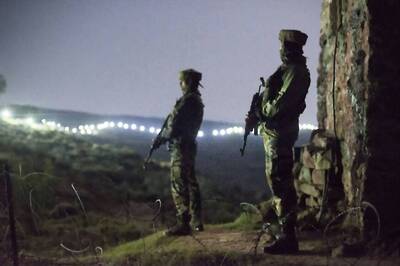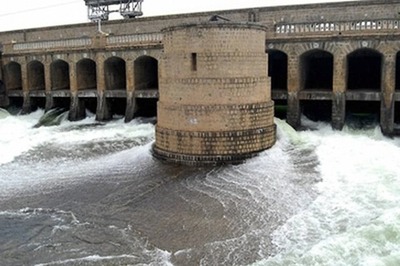
views
In a column recently, it was stated that armed forces personnel do not pause to reflect whether the use of force — often, lethal force — is avoidable, and that they do not weigh the options; they use maximum force. Nothing could be further than this from the truth and the actualities on ground. Consequent to the unfortunate death of 13 civilians on December 4, 2021, (in a case of mistaken identity, for which the Army has apologised), the chief ministers of Manipur, Nagaland and Meghalaya have demanded the repeal of the Armed Forces Special Powers Act (AFSPA). The home ministry has formed a panel to review the Act, and the Assam government has promised rationalisation in 2022.
The debate over the Act is never-ending, and swings across the spectrum from human rights and legal immunity to armed forces, to empowering the armed forces to operate in an area prone to violence. The basic issue herein is the prevalent disturbed situation. Understandably, these insurgencies and terrorism in the border states can be unrelenting due to external abetment by inimical neighbours. Only when the situation deteriorates to an extent that threatens public order, and existing law and order mechanism is unable to effectively stem the violence, the area is declared under a “Disturbed Area Act”. This becomes the foundational step to tasking the armed forces to combat the insurgency or terrorism.
The armed forces are primarily to defend the borders against external aggression, which in India by itself is a very heavy responsibility with disputed borders with two adversaries. Constitutionally, thence, the Armed forces have to be mandated and empowered to operate in an insurgency or terror prone area by legal provisions of AFSPA for a period laid down by the Central government. In fact, for the armed forces, it is advantageous to remain focused on their primary charter of external threats.
However, since 1958, the Army stands committed in combating insurgency and terrorism in the northeast, and in Jammu and Kashmir since 1991. Especially, in Nagaland, the Army had to be called in as state security agencies and law and order machinery had been ineffective to deal with the Naga insurgency. The situation was so grave that a parallel government of sorts, helmed by the Naga Nationalist Council existed, as if running the state. As has been the case in Tripura or Punjab, or in Imphal district in Manipur, when the state governments opine that maintaining peace in the state is feasible within their resources, the “Disturbed Areas Act” is withdrawn and AFSPA is repealed. The judgment, hence, for commitment or withdrawing the armed forces, fully or partially, is a political decision resting with the state governments.
Are the armed forces operations under AFSPA without rules of engagement? This is the myth perpetuated by certain sections of the society. Armed forces are institutions of state. They have stringent rules of engagement in combating insurgencies, and are trained on using minimum force, principle of good faith and continually counselled on respect for human rights. AFSPA is, hence, applied with rigorous controls developed by the armed forces themselves.
Specialist counterinsurgency forces function in an intense environment wherein differentiating amongst terrorists, Over Ground Workers and ordinary civilians is very difficult. Separating terrorists from the normal populace in order to apprehend or neutralise them becomes, if not impossible, improbable. In many such cases, to avoid causing collateral damage and hardships to the civilian population, the armed forces calibrate and even defer operations. There is always an endeavour to avoid bloodshed, even by seeking surrender of the insurgents or terrorists. It is accepted that in such ill-defined operational environment, aberrations or mistakes can occur which lead to collateral damage as the unfortunate incident that happened in Mon district of Nagaland on December 4, 2021.
As is normal, in the armed forces legal systems, due cognisance and review is taken of all operations, especially of aberrations, and these are followed up to the legal conclusions, and to lessons learnt for future. The Act itself has provisions for the Central government to sanction prosecution or other legal proceedings against personnel who act in contravention to applicable laws and SOPs.
AFSPA provides the constitutional and legal empowerment for the armed forces to operate in a Disturbed Area, though the operations are under strict guidelines and discipline. As there are undercurrents against AFSPA and its purported misuse the states, as has been in the case of Punjab and Tripura, need to create the capabilities to address the internal turmoil. The Tripura government (under Manik Sarkar) strengthened the state police and other agencies by training and empowering them in dealing with the insurgency in the state before taking off the state from “Disturbed Area” status in 2015. The same can even be done in Nagaland, though there are sympathisers of the insurgency, who seemingly obtain material benefits from illicit smuggling, extortion and trafficking. The Nagaland government can commit the state police itself against the armed groups and extortionists. The Nagaland police has repeatedly displayed their capabilities with their successful operations in other parts of India wherever they are deployed. The state government and the public must openly support police action against any lawbreaker without succumbing to the demands of NGOs with motivation.
If law and order situation can be brought under control by the state security forces, it is the best for the nation. There needs to be rapid and sustained strengthening of the police forces to train and equip them to deal with armed insurgencies by themselves. This will also bring in much-needed accountability in these institutions. States must receive complete support to assume their rightful role in matters concerning internal security.
A review has been rightly undertaken. Indeed, the designation of Disturbed Areas and tasking of armed forces in such tasks needs a review. Any dilution, however, of AFSPA and protection that it provides to the soldiers, will, however tie their hands in operating in difficult and violent situations. The armed forces, operating in dynamic situations, on their part must constantly review the rules of engagement and the SOPs, and learn from the inadvertent mistakes, to avoid recurrence.
Near-permanent commitment of the armed forces in combating insurgencies and terrorism does not lend to effective preparations for a two-adversary external environment. This was gravely evident in the transformation needed by the army units tasked from Kashmir Valley for Kargil War in 1999. In a counter-insurgency environment, the army (and AFSPA) only becomes a convenient scapegoat, both for grandstanding and deflecting the ire of the public away from the atrocities perpetrated by the insurgents. By targeting AFSPA and the Indian Army, which was called in because the state’s law and order machinery could not discharge its primary responsibility, one is missing the woods for the trees, addressing the symptom and not the cause.
Lt Gen (Dr) Rakesh Sharma was commissioned as an infantry officer in Gorkha Rifles in 1977, and has a career spanning 40 years. He has had an extensive operational experience in Jammu and Kashmir, the northeast and on Western Borders. The views expressed in this article are those of the author and do not represent the stand of this publication.
Read all the Latest Opinions here




















Comments
0 comment